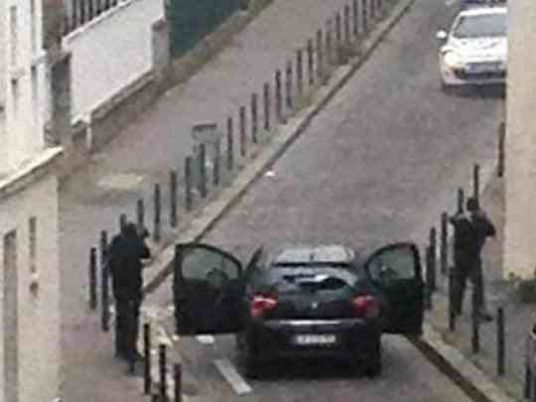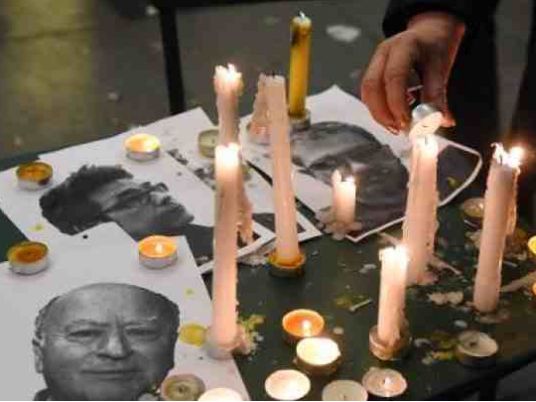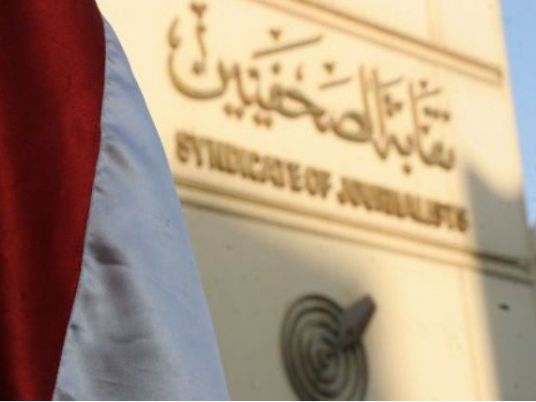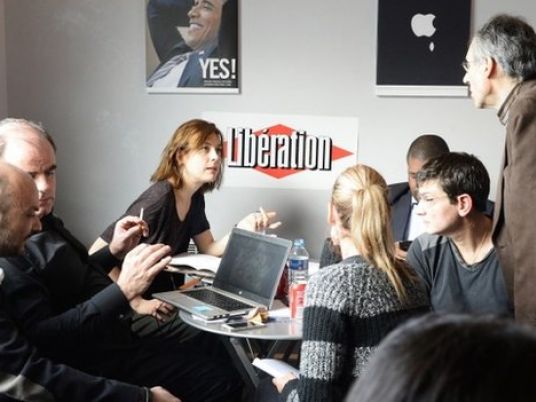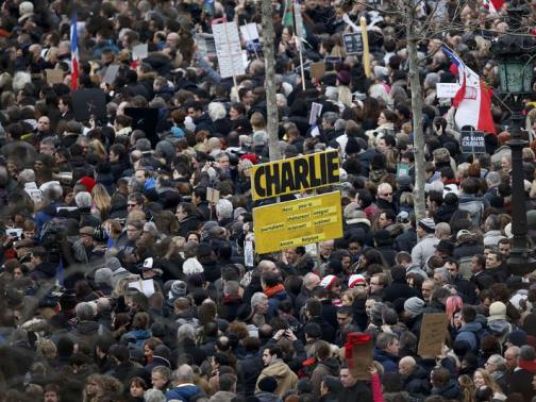
Dozens of world leaders including Muslim statesmen gathered in Paris on Sunday to join hundreds of thousands of French citizens set to march amid high security in an unpredecented tribute to victims of this week's Islamist militant attacks.
Hours before the march, a video appeared online apparently made by one of the gunman before he took hostages at a Jewish supermarket on Friday, killing four before he himself was killed by police. He sat wearing white robes, a gun by his side.
Some 2,200 police and soldiers patrolled Paris streets to protect marchers from would-be attackers, with police snipers on rooftops and plain-clothes detectives mingling with the crowd. City sewers were searched ahead of the vigil and underground train stations around the march route are due to be closed down.
The silent march, starting at 3 p.m. (1400 GMT), reflects shock over the worst militant Islamist assault on a European city in nine years. For France, it raised questions of free speech, religion and security, and beyond French frontiers it exposed the vulnerability of states to urban attacks.
An Elysee official quoted President Francois Hollande as telling his ministers: "Paris is today the capital of the world. Our entire country will rise up and show its best side."
Seventeen people, including journalists and police, were killed in three days of violence that began with a shooting attack on the satirical newspaper Charlie Hebdo on Wednesday and ended with a hostage-taking at a Jewish deli in which four hostages were killed.
A video emerged featuring a man resembling the gunman killed in the kosher deli. He pledged allegiance to the Islamic State insurgent group and urged French Muslims to follow his example. A French anti-terrorist police source confirmed it was the killer, Amedy Coulibaly, speaking before the action.
Under a blue winter sky and bright sunshine, thousands gathered early to inspect wreaths for the victims on Place de la Republique, the square from which the march will head off through Paris later. Giant letters attached to a statue in the middle of the square spelt out "Pourquoi?" ("Why?")
Overnight, an illuminated sign on the Arc de Triomphe read: "Paris est Charlie" ("Paris is Charlie").
"I am here to show the terrorists they have not won – on the contrary, it is bringing people together of all religions," said Zakaria Moumni, a 34-year-old Franco-Moroccan draped in the French flag.
Loris Peres, 12, there with his mother and brother, said: "For me this is like paying respect to your loved ones, as if it were family … We did a lesson about this at school."
German Chancellor Angela Merkel, British Prime Minister David Cameron and Italy Prime Minister Matteo Renzi will be among 44 foreign leaders due to march with President Francois Hollande. U.N. Secretary-General Ban Ki-moon, Turkish premier Ahmet Davutoglu and Israel's Benjamin Netanyahu – who earlier encouraged French Jews to emigrate to Israel – are expected.
"(The march) will be an unprecedented demonstration that will be go down in the history books," Prime Minister Manuel Valls said.
Twelve people were killed in Wednesday's initial attack on Charlie Hebdo, a journal know for satirising religions and politicians. The attackers, two French-born brothers of Algerian origin, singled out the weekly for its publication of cartoons depicting and ridiculing the Prophet Mohammad.
All three gunmen were killed in what local commentators have called "France's 9/11", a reference to the September 2001 attacks on U.S. targets by al Qaeda.
Across France on Saturday, hundreds of thousands of people took part in rallies. Many carried signs saying "Je suis Charlie" (I am Charlie).
The head of France's 550,000-strong Jewish community, Roger Cukierman, the largest in Europe, said Hollande had promised that Jewish schools and synagogues would have extra protection, by the army if necessary, after the killings.
France's Agence Juive, which tracks Jewish emigration, estimates more than 5,000 Jews left France for Israel in 2014, up from 3,300 in 2013, itself a 73 percent increase on 2012.
While there has been widespread solidarity with the victims, there have been dissenting voices. French social media have carried comments from those uneasy with the "Je suis Charlie" slogan interpreted as freedom of expression at all cost. Others suggest there was hypocrisy in world leaders whose countries have repressive media laws attending the march.
Far-right National Front leader Marine Le Pen, whom analysts see receiving a boost in the polls due to the attacks, said her anti-immigrant party had been excluded from the Paris demonstration and would instead take part in regional marches.
In Germany, a rally against racism and xenophobia on Saturday drew tens of thousands of people in the eastern German city of Dresden, which has become the centre of anti-immigration protests organised by a new grassroots movement called PEGIDA.
Separately, a building of the newspaper Hamburger Morgenpost, which like many other publications has reprinted Charlie Hebdo cartoons, was the target of an arson attack and two suspects were arrested, police said on Sunday.
Turkish and French sources said a woman hunted by French police as a suspect in the attacks had left France several days before the killings and is believed to be in Syria.
French police had launched in an intensive search for Hayat Boumeddiene, the 26-year-old partner of one of the attackers, describing her as "armed and dangerous".
But a source familiar with the situation said Boumeddiene left France last week and travelled to Syria via Turkey. A senior Turkish official corroborated that account, saying she passed through Istanbul on Jan. 2.

